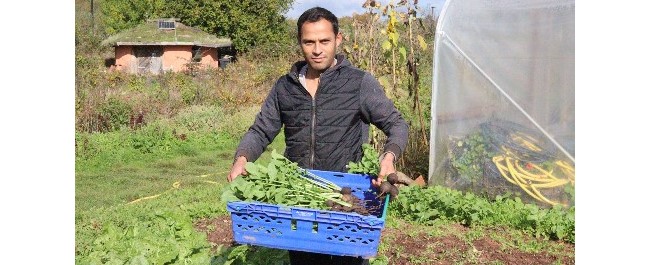Goal 8: Decent work and economic growth
Promote sustained, inclusive and sustainable economic growth, full and productive employment and decent work for all
Our research
New research from the University of Bristol Business School in 2023 found that more than half of gig economy workers in the UK are paid below minimum wage. The study, believed to be the first of its kind, gathered input from 510 people in a range of part-time, gig-based roles. It explored their pay and conditions, their health and wellbeing, and their views on what changes could improve these types of work. Recommendations included extending basic worker rights and protections and creating representative mechanisms for workers to contribute to decision-making.
Researchers within the Business School have also explored the changing behaviour of workers in relation to work-related risk-taking. Two key publications in 2023 have explored the links between household indebtedness, for example through mortgages, and attitudes to taking risks with workplace security, through accepting or refusing atypical working arrangements, or through taking industrial action over workplace concerns. This research has helped increase understanding of employee-employer relations and demonstrates the role of household financial factors in workers’ decision-making.
Our students
Students at the University have a range of options for postgraduate courses that focus on good employment. Our MSc Human Resources Management and the Future of Work is an intensive, specialist programme focused on changes to work resulting from the green transition, digital transformation, and the agendas around sustainability and global equality. Our LLM Law in Employment, Work and Equality offers a chance to explore employment law with a specific focus on equality, migration, and contemporary legal issues.
The Bristol PLUS Award has been designed to help students prepare for finding work after university. This employability award scheme recognises and rewards students for their extracurricular activities, providing a structure for reflecting on achievements and skills, and demonstrating commitment and value to future employers. Students who go above and beyond can even win an Outstanding PLUS Award, for making an impact through their actions. Winners in 2022/23 included students who developed initiatives to tackle period poverty, created a sensory room on campus to enable inclusiveness for neurodiverse students, and brought organisations together to better support refugees and asylum seekers.
Our communities
Researchers from the University’s Migration, Mobilities Bristol specialist research institute have been working with partners from local social enterprise Ashley Community Housing to help support refugees and migrants in the Bristol area starting and growing their own businesses. The Migrant Business Support Project, launched in 2021, has supported more than 640 people in its first 30 months. A study in 2023 by the University showed that this model, informed by the lived experience of the refugees and migrants themselves, and focused on offering positive, holistic support, gives positive outcomes for individuals and their communities.
As a Living Wage employer, the University joined a celebration of Three Years of Bristol Living Wage City in 2022, in partnership with the Mayor of Bristol, Bristol City Council and fellow Living Wage employers. The event was an opportunity to engage with experts about the accreditation process and hear from businesses about their experiences. Our Bristol Poverty Institute also participated and outlined the impact the Living Wage could make for organisations and the city.
Ourselves
The University makes a significant contribution to the economic, social and environmental wellbeing of Bristol and the South West region. This includes ensuring that a rising proportion of external purchasing is spent via organisations based in the surrounding region. One of our procurement targets was to increase the University’s spend with local suppliers to at least £40 million by 2029/30. This has already been exceeded, with an estimated quarter of spending being among firms operating in Bristol (£70 million), and almost half within the West of England Combined Authority (£131 million). We are also committed to encouraging environmental sustainability, education, training work placements, apprenticeship opportunities, inclusion and employment through our contracts.
Opportunities to increase employability can be vital to a student’s future happiness and success, but personal circumstances can make it challenging for some. The University’s Futures Scholarship programme has been designed to help tackle these inequalities of opportunity, providing up to £1,000 for students in need to be able to take advantage of activities to boost their employment prospects, such as internships, placements, or summer programmes.

